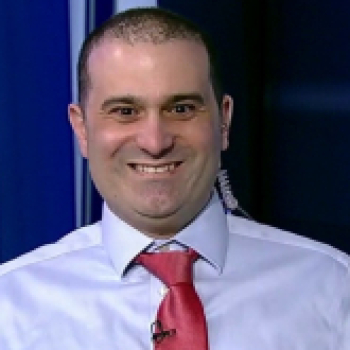
- All Instrument Types
- Indices
- Equities
- ETFs
- Funds
- Commodities
- Currencies
- Crypto
- Bonds
- Certificates
Please try another search

Which stocks will surge next?
China's Upcoming Leadership Change: April 11, 2012

It's not just the United States that will have a potentially major leadership shake up this fall. China is set to undergo its once-in-a-decade leadership transition at its 18th China Communist Party (CCP) Congress. In contrast to the long, bombastic, and often indecisive American election process, the Chinese approach to regime succession is conducted behind closed doors, and can sometimes result in severe shifts in policy. This decisiveness was on view today as rising Chinese political star Bo Xilai was ousted from his remaining leadership positions.
While we do not believe that China is at the threshold of a sharp adjustment in its economic plans, there can be little doubt that even slight changes in outlook from Beijing may have huge impacts on the global financial stage.
By the end of 2012, most of China's current leadership will be replaced, including the President, Premier, and seven of the nine members of the Political Standing Committee (PSC) of the Politburo. The PSC sets the political agenda for the country and is arguably the most powerful group of politicians in China. Although the leadership transition is occurring as the economy is facing a number of challenges, we don't anticipate major changes to the political landscape.
Elitist Vs. Populist
It is generally believed that there are two informal coalitions within China's communist party, the "Elitists" and the "Populists." The elitist coalition consists of the "princelings" (younger relations of the previous generations of prominent politicians) and the 'Shanghai Gang' which is a name applied to a group of politicians that held top offices in Shanghai.
The Elitist faction is generally associated by former President Jiang Zemin and his political allies. This coalition represents the interest of large corporations and the emerging middle class. Elitists generally have governing experience of advanced economic regions, where policy tends to favor economic growth and financial reforms.
The populist coalition refers to the political class that doesn't have a strong family background, often coming from the lower or middle classes, and often gaining political and government experience from less developed provinces of China's interior. Some of the leading figures in the populist bloc, such as current president Hu Jintao, came into the highest echelons of the Communist Party through the Communist Youth League (CCYL) system. Both Hu and Wen Jiabao are deemed as populists, who are thought to show greater sympathy to the lower classes, including farmers, migrant workers, and the urban poor.
Although there appears to be some strong ideological and pragmatic lines between these two factions, for now at least it does not appear that tensions are on the rise. Part of this calculation comes from the fact that the sides are evenly balanced, and neither has a strong political advantage.
For example, the President hopeful, Mr. Xi Jinping, is a princeling, whose father was a former Politburo Member, a Vice Premier, and one of the architects of China's Special Economic Zones. Xi had more than 20 years of administrative experience in the economically developed Fujian province, Zhejiang province, and Shanghai. It is reported that, based on his governing style in these regions, he is an open-minded, market-oriented, and pro-reform leader.
In contrast, the Premier hopeful, Mr. Li Keqiang, is a populist. Raised from a low-level official family, Mr. Li had been the governor of the less developed Henan province. He advanced his early career mainly through the CCYL system and is believed to be a protégé of President Hu Jintao. Mr. Li is one of the main promoters of the social housing program and he is known to support expansive healthcare coverage, employment, inland development, and clean energy. In addition, of the 14 likely candidates for the supremely powerful nine-member Politburo Standing Committee, seven are elitists and seven are populists. Therefore, the new PSC is likely to have a balanced composition between the two coalitions, despite the recent downfall of Bo Xilai.
China recently released its next Five-Year Plan, which provides an important framework for Chinese economic and social development. Despite a significant turnover of key leadership positions, we do not expect major policy shifts from the policies laid out in the plan. Furthermore, outgoing leaders Hu and Wen will continue to work with the newly elected leaders until next March before they actually retire. The outgoing leaders will likely have continued political influence following their retirement and the new leadership will need a few years to consolidate power before they are able to initiate major changes.
In the meantime, our macro view of China remains unchanged (for an analysis of China's recent international buying spree, see our latest newsletter). We expect top level policies will continue to guide the Chinese economy away from an export and investment-driven growth model to a more balanced economy. Specifically, we are focused on the following sectors: domestic consumption, healthcare, education, industrial automation and energy efficiency/clean energy.
Related Articles

Here is a trillion (dollar) reasons why the US economy is likely to hold up until elections: between now and then, Yellen is likely to drain the Treasury General Account (TGA) and...

Stocks finished flattish on the day, but we are moving into the busiest part of the week. Now that Meta’s results are out of the way, we will have GDP and PCE to finish the...

To be successful, active investors have to watch (and create) indicators that the mainstream media do not follow.Trading is hard, requiring discipline and a strict set of...
Are you sure you want to block %USER_NAME%?
By doing so, you and %USER_NAME% will not be able to see any of each other's Investing.com's posts.
%USER_NAME% was successfully added to your Block List
Since you’ve just unblocked this person, you must wait 48 hours before renewing the block.
I feel that this comment is:
Thank You!
Your report has been sent to our moderators for review




Add a Comment
We encourage you to use comments to engage with other users, share your perspective and ask questions of authors and each other. However, in order to maintain the high level of discourse we’ve all come to value and expect, please keep the following criteria in mind:
Enrich the conversation, don’t trash it.
Stay focused and on track. Only post material that’s relevant to the topic being discussed.
Be respectful. Even negative opinions can be framed positively and diplomatically. Avoid profanity, slander or personal attacks directed at an author or another user. Racism, sexism and other forms of discrimination will not be tolerated.
Perpetrators of spam or abuse will be deleted from the site and prohibited from future registration at Investing.com’s discretion.